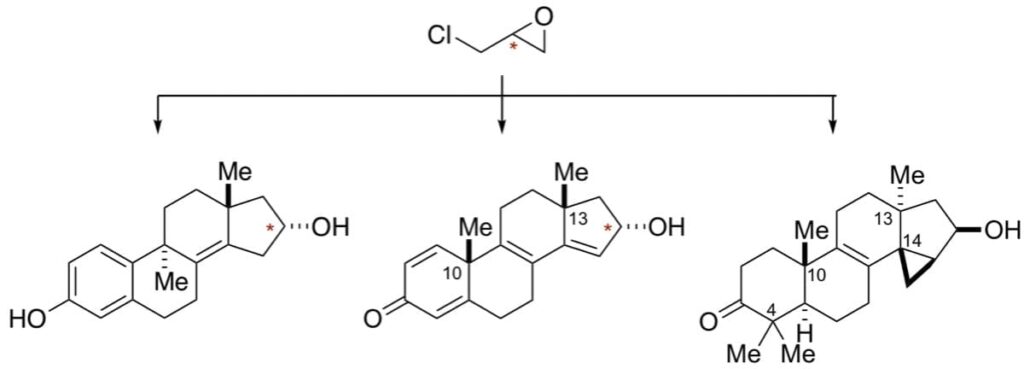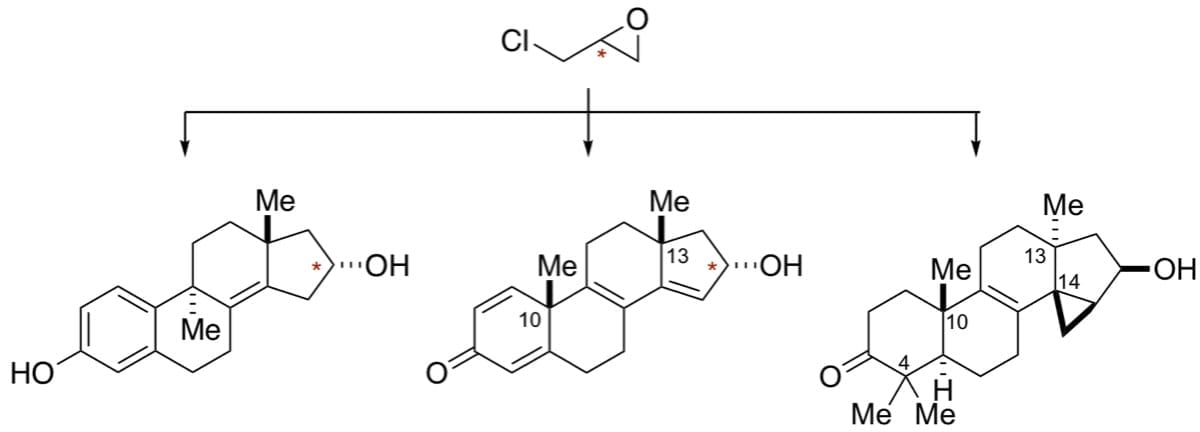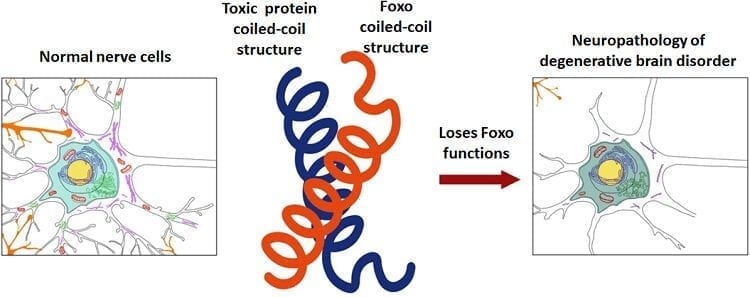
A research team at Dartmouth College has developed a new strategy for drug discovery and development that can be used to produce targeted therapies against diseases such as cancer and neurodegeneration, according to a study published in Nature Communications. It is hoped that the process will also be useful in the large-scale production of new pharmaceuticals.
The new technique uses a novel synthesis approach for a class of organic compounds known as tetracyclic terpenoids. Tetracyclic terpenoids are responsible for more than 100 FDA-approved drugs and are considered the most successful class of natural product-inspired pharmaceuticals.
“Until now, there was nothing like this available for drug discovery and development,” said Glenn Micalizio, the New Hampshire Professor of Chemistry at Dartmouth. “While additional development is expected to enhance the power of this new technology, I believe that we are at the beginning of establishing a truly enabling and potentially transformative technology for the pharmaceutical industry.”
The process combines two new chemical reactions that establish bonds between carbon atoms with a unique metal-centered ring-forming reaction also developed by Micalizio.
The new technique allows for uniting molecular building blocks en route to a terpenoid skeleton in just a few chemical transformations. The result is a uniquely efficient and flexible means of enabling drug discovery in this area of natural product-focused medicinal science.
Combined, these reactions allow for exploration of pharmaceutically-privileged regions of chemical space through the straightforward conversion of inexpensive, commercially-available chemicals into high-value, pharmaceutically-relevant compounds.
The research team’s initial work has already led to discovery of what could be the most potent and selective modulator of the estrogen receptor beta, a nuclear hormone receptor that is of great interest in industry as a therapeutic target for a wide variety of illnesses.
“This is an important first step toward establishing a new technology platform to greatly facilitate drug discovery across a diverse landscape of therapeutic indications,” said Micalizio.
To demonstrate the value of the technique, the study describes the discovery of a molecule that is selectively toxic to glioblastoma—an aggressive and deadly brain tumor—while showing little effect on non-cancerous human neural stem cells and human astrocytes
“Glioblastomas are incurable, and existing therapies have horrific side effects,” said Arti Gaur, an assistant professor of neurology at Dartmouth’s Geisel School of Medicine. “It is extremely exciting and encouraging to see that these novel compounds can selectively kill patient-derived brain tumor cells without harming cells from normal, healthy brain tissue.”
The team is currently conducting in vivo testing of the new therapeutic agent and further developing chemical aspects of the emerging technology platform. The work is part of an effort to explore and demonstrate the power of advances in organic chemistry to enable discovery of therapeutics for a wide range of indications, including neurodegeneration, neuroinflammation and a wide variety of malignancies.
Learn more: Researchers Develop Breakthrough Process to Create Cancer-Killing Drugs
The Latest on: Tetracyclic terpenoids
[google_news title=”” keyword=”tetracyclic terpenoids” num_posts=”10″ blurb_length=”0″ show_thumb=”left”]
via Google News
The Latest on: Tetracyclic terpenoids
- Brugada Syndromeon April 21, 2024 at 5:00 pm
ST Segment (Terminal Portion) Gradually Descending Elevated ≥1 mm Elevated
- Stability of Pantoprazole in an Extemporaneously Compounded Oral Liquidon April 19, 2024 at 4:59 pm
Pantoprazole is used for the shortterm treatment of erosive esophagitis associated with gastroesophageal reflux disease. [2] It is available as a lyophilized powder for injection in 10-mL glass ...
- Indica vs. sativa vs. hybrid: getting the strains straighton April 19, 2024 at 1:22 am
A study examining the impact of cannabis terpenes concluded that the healing power of the plant “most likely resides in terpenes/terpenoids and phytocannabinoids” and other elements ...
- Can Caviar Cure Depression?on April 15, 2024 at 1:27 pm
It might sound a little fishy, but there is growing evidence that caviar can help chase away the blues. Early research suggests that people suffering from depression, bipolar disorder, and other ...
- Botany Newson April 14, 2024 at 5:00 pm
Apr. 23, 2024 — A rapidly spreading virus threatens the health of the cacao tree and the dried seeds from which chocolate is made, jeopardizing the global supply of the world's most popular ...
- Nutrition Professionals Uncover the Benefits of Oregano Oilon April 11, 2024 at 12:34 pm
→ Love Oregano? Get nutritional facts, tips from health experts, and more Oregano oil has several health benefits due to compounds called phenols, terpenes, and terpenoids. They have powerful ...
- Many people wean off antidepressants too quickly. That can be dangerous.on April 9, 2024 at 5:00 pm
Phil, a 32-year-old business executive in New Jersey who asked that his last name not be used, was on a tetracyclic antidepressant for just three months in 2022 when he decided to stop the ...
- Organic alternative to chemical pesticides discoveredon April 9, 2024 at 1:55 am
Terpenoids, also known as isoprenoids, are a class of naturally occurring organic chemicals. Plant terpenoids are used for their aromatic qualities and play a role in traditional herbal remedies.
- Rose essential oil may have a new use as an organic pesticideon March 29, 2024 at 1:52 pm
Thankfully, though, scientists are discovering more and more options. In this particular case, they looked at rose terpenoids. Terpenoids are a diverse class of organic volatile compounds found in ...
- Kevin Sheaon October 3, 2023 at 5:29 pm
Kevin Shea focuses on organic chemistry. His lab uses organic synthesis to investigate new methods for carbon-carbon bond formation and to develop syntheses of biologically active molecules.
via Bing News











